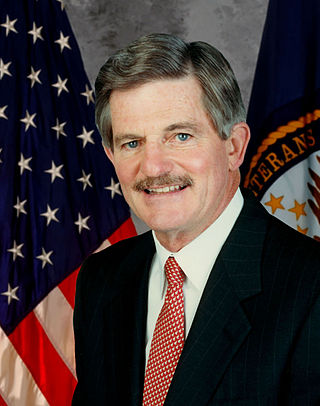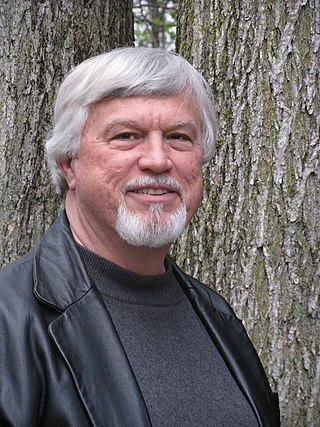Related Research Articles

The Vietnam War was a conflict in Vietnam, Laos, and Cambodia from 1 November 1955 to the fall of Saigon on 30 April 1975. It was the second of the Indochina Wars and a major conflict of the Cold War. While the war was officially fought between North Vietnam and South Vietnam, the north was supported by the Soviet Union, China, and other countries in the Eastern Bloc, while the south was supported by the US and anti-communist allies. This made the conflict a proxy war between the US and Soviet Union. Direct US military involvement lasted from 1965 until its withdrawal in 1973. The fighting spilled over into the Laotian and Cambodian civil wars, which ended with all three countries becoming communist in 1975.

Hồ Chí Minh, colloquially known as Uncle Ho, and by other aliases and sobriquets, was a Vietnamese communist revolutionary and politician. He served as prime minister of the Democratic Republic of Vietnam from 1945 to 1955, and as president from 1945 until his death in 1969. Ideologically a Marxist–Leninist, he was the Chairman of the Workers' Party of Vietnam, the predecessor of the current Communist Party of Vietnam.
Albert Peter Dewey was an American Office of Strategic Services operative shot to death in a case of mistaken identity by Communist aligned Viet Minh troops on September 26, 1945. Dewey was the first American fatality in French Indochina, killed during the 1945 Vietnamese uprising.

Vietnam Veterans of America, Inc. (VVA) is a national non-profit corporation founded in 1978 in the United States that is committed to serving the needs of all veterans. It is funded without any contribution from any branch of government. VVA is the only such organization chartered by the United States Congress and dedicated to Vietnam War veterans and their families. The group holds a congressional charter under Title 36 of the United States Code.

William Anthony Kirsopp Lake is an American diplomat and political advisor who served as the 17th United States National Security Advisor from 1993 to 1997 and as the sixth Executive Director of UNICEF from 2010 to 2017.

Jeremiah Andrew Denton Jr. was an American politician and military officer who served as a U.S. Senator representing Alabama from 1981 to 1987. He was the first Republican to be popularly elected to a Senate seat in Alabama. Denton was previously a United States Navy rear admiral and naval aviator taken captive during the Vietnam War.

The Glassboro Summit Conference, usually just called the Glassboro Summit, was the 23–25 June 1967 meeting of the heads of government of the United States and the Soviet Union—President Lyndon B. Johnson and Premier Alexei Kosygin, respectively—for the purpose of discussing Soviet Union–United States relations in Glassboro, New Jersey. During the Arab–Israeli Six-Day War diplomatic contact and cooperation increased, leading some to hope for an improvement in the two countries' relations. Some even hoped for joint cooperation on the Vietnam War. Although Johnson and Kosygin failed to reach agreement on anything important, the generally amicable atmosphere of the summit was referred to as the "Spirit of Glassboro" and is seen to have improved Soviet–US relations.

John Paul Vann was a lieutenant colonel in the United States Army, later retired, who became well known for his role in the Vietnam War. Although separated from the military before the Vietnam War reached its peak, he returned to service as a civilian under the auspices of the United States Agency for International Development and by the waning days of the war was the first American civilian to command troops in regular combat there. He received the Presidential Medal of Freedom and was the only civilian in Vietnam to receive the Distinguished Service Cross. He died on June 9, 1972, in a helicopter crash in Vietnam just after the Battle of Kontum.

Robert James Nicholson is an attorney, real estate developer, and a former Republican National Committee chairman. He was the United States Secretary of Veterans Affairs from January 26, 2005, until October 1, 2007.
Charles P. Stone, was a career United States Army officer during the middle of the 20th century. After serving in World War II, in 1968 Major General Stone commanded the U.S. Army's 4th Infantry Division in Vietnam, leading his division to success during the Tet offensive.

Opposition to United States involvement in the Vietnam War began in 1965 with demonstrations against the escalating role of the United States in the war. Over the next several years, these demonstrations grew into a social movement which was incorporated into the broader counterculture of the 1960s.

Vietnam Veterans Against the War (VVAW) is an American tax-exempt non-profit organization and corporation founded in 1967 to oppose the United States policy and participation in the Vietnam War. VVAW is a national veterans' organization that campaigns for peace, justice, and the rights of all United States military veterans. It publishes a twice-yearly newsletter, The Veteran; this was earlier published more frequently as 1st Casualty (1971–1972) and then as Winter Soldier (1973–1975).

Jan Craig Scruggs is a United States Army veteran who served in the Vietnam War, and later founded the Vietnam Veterans Memorial Fund, which built the Vietnam Veterans Memorial in Washington, D.C., in the United States. Scruggs was the President of the foundation until 2015, when he retired.

Marc Leepson is an American journalist, historian, and author.
Wayne Karlin is an American author, editor, and teacher. His books include The Genizah (2024), A Wolf by the Ears, Wandering Souls, Marble Mountain,War Movies: Journeys to Vietnam, The Wished-For Country, Prisoners, Rumors and Stones, Crossover, Lost Armies, The Extras, and Us.

Formal relations between the United States and Vietnam were initiated in the nineteenth century under former American president Andrew Jackson, but relations soured after the United States refused to protect the Kingdom of Vietnam from a French invasion.

Gary Tillery is an American writer and artist known for his biographies focusing on the spiritual lives of famous figures, and for his public sculptures. His 2009 book, The Cynical Idealist, was named the official book of the 2010 John Lennon Tribute in New York City, and he created the centerpiece sculpture of the Chicago Vietnam Veterans Memorial, dedicated in 2005.
William "Bill" Albracht was an Army captain in the Vietnam War. He is a recipient of three Silver Stars, and is the author of Abandoned in Hell: The Fight for Vietnam's Firebase Kate.

Phillip Neal "Phil" Butler is a retired United States Naval officer and pilot. He was the eighth-longest-held U.S. prisoner of war (POW) held in North Vietnam during the Vietnam War. Butler, who was forced to eject after a mid-air explosion on April 20, 1965, was a prisoner of war in North Vietnam until his release as part of Operation Homecoming in 1973. Butler was one of the five POWs credited with establishing the tap code. The code enabled the prisoners to communicate with each other.
References
- 1 2 3 4 5 6 7 8 9 10 11 Springston, Chuck (April 2018). "Voices: John Rowan". HistoryNet . Retrieved March 20, 2019.
- 1 2 3 4 "John Rowan: National President". Vietnam Veterans of America. Archived from the original on August 11, 2019. Retrieved March 20, 2019.
- 1 2 3 4 "Advisory Board: John Rowan". NYC Department of Veterans' Affairs. Archived from the original on March 20, 2019. Retrieved March 20, 2019.
- ↑ Kelly, Caitlin (December 4, 2005). "Stress is called a killer for vets" . New York Daily News. p. 26. Retrieved March 20, 2019– via Newspapers.com.